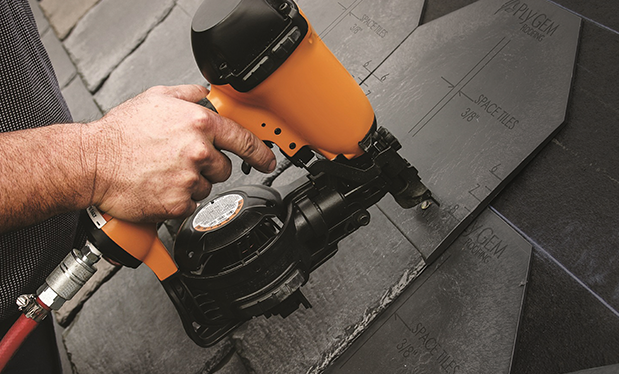It's Friday afternoon, and you're able to get out of the office a little early. As you are headed home, your spouse calls and asks you to stop at the grocery store. You're given a list—a short one you can handle!
So you go to the store and find the items without having to ask anybody for help. You walk up to the checkout counter and put the food on the moving belt. The clerk hands you a check tag and tells you to come back in three hours after they have everything added up. When you return, you will get in line a second time, pay and then receive your food. You calmly smile, say thank you and go to Starbucks to get a cup of coffee to begin the three-hour wait.
What? It doesn't work that way? Would you mind if it did?
How long do you make your customers wait for their repair invoices? Is the process different than going to the grocery store? Your customers don't think so, and they only tolerate the wait for the same reason you would be sitting at Starbucks—every other grocery store is just as slow at adding up the bill.
The truth is, your customers would love your service department if it were this good. And they are just as irritated with your service department as you would be with the grocery store while sitting at Starbucks drinking coffee for three hours. If you want to distinguish your company in the marketplace, you need to focus on providing your customers with exemplary service.
Whom do you want to work for?
In the mid-1990s, there was a fundamental shift in the U.S. economy where a majority of commerce shifted from hard goods to information and services. There are a variety of names being attached to this economy, including "knowledge-based economy," "service economy" and "the information age." All this points to a changing emphasis: Customer expectations have changed. Being able to find and fix a roof leak no longer is good enough. You still have to fix the leak, but now you also must provide excellent service.
In my role as a roof consultant, I often interact with roofing professionals. During my discussions with roofing contractors, most of them tell me they want to find ways to differentiate themselves in the marketplace. Now, think this through: If you don't want to be competing against "Bubba, his brother and their pickup truck," then whom do you want to be working for? Do you want to work for clients who can appreciate the quality of service you have to offer?
If yes, there is a name for these clients in our industry—they are called "knowledgeable" customers. These customers are good at what they do, and they have expectations. And their expectations are the same as yours. They don't want to wait three hours for food at the grocery store. They also don't want to wait three hours (much less three days or three weeks) for your repair invoice to appear.
Let's be clear, the only way a grocery store is going to get away with making you wait three hours for your bill and food is if every other grocery store operates the same way. The only reason your service department is getting away with untimely billing is because all your competitors are doing it, as well. What do you think is going to happen to people's shopping patterns when the first grocery store in your town starts providing instant itemized invoices? What do you think will happen in your service department when you start giving people what they need?
Many roofing company owners would rather focus on installing roof systems than on improving their service departments. This thinking may have been a sound strategy before the mid-1990s, but in the current marketplace it is a shortsighted strategy with negative, long-term consequences.
In February during the 2016 International Roofing Expo® (IRE), I was privileged to present a customer service workshop. Fewer than 1 percent of those attending the IRE recognized the importance of service enough to invest 90 minutes learning how to get better! You know who wasn't there? Bubba, his brother and their pickup truck and about 9,000 of your competitors who say they want to find ways to distinguish themselves from others but haven't figured out how.
Getting a "good roof" installed is not that difficult because knowledgeable building owners are demonstrating they can get it done without assistance from a roof consultant or advice from a true roofing professional, and they are doing so regularly. So other than cheap (low margin) prices, how are you going to distinguish yourself in an environment of knowledgeable customers? The truly progressive roofing contractors already have figured out the answer: service. Service is not about fixing roof leaks. Service is about providing exemplary service.
How does our industry stack up?
The first thing to understand about service is if you are not providing good service, as far as your customers are concerned, you are providing bad service. Many years ago, I had a revealing conversation with one of the best property managers with whom I've ever worked. He manages commercial shopping centers, and at the time of the conversation, a majority of his properties were more than 500 miles from his office. The conversation went something like this:
"You do all your work remotely, which involves managing porters, sweepers, snow removal teams, landscapers, mowers, electricians, roofing contractors, fire protection contractors, security monitoring personnel and many others. How do the roofing contractors stack up regarding customer service?" I asked.
He thought about it a bit and said: "The roofing contractors are the worst."
The sobering thing about this is the service departments he rated so poorly currently are among the best my company works with anywhere in the U.S.
Providing exemplary service
Before I offer some suggestions about things you can do to improve your customer service, let's start with the most important piece that will need to be in place before you can make the rest of it work. You need to hire people with true customer service skills.
Many progressive roofing contractors have discovered that if they want to hire a salesperson, they are better off hiring someone who has proven sales skills and teaching that person what he or she needs to know about roofing rather than hiring somebody who has roofing knowledge and trying to teach him or her how to sell. In exactly the same way, your service department needs to be staffed with people who are good at customer service. You can teach them what they need to know about roofing.
Recommendations
- Get your repair invoice in your customer's hands within 24 hours from the time the work is completed. This means
you will need to send invoices via email. There are software products available for your field techs to use on their
tablets that will allow them to email an invoice the instant they walk off a roof. Many products were designed with
roofing contractors in mind, and many roofing contractors already are using such products. However, though some have
quickly figured out how to use software to make their departments more efficient, many have not learned to use the
software to give their customers better service. One may believe an efficient service department equates to better
service, but often this isn't the case.
Think about all the telephone calls you receive from customers asking whether everything is fixed, what type of work was done, etc. All these calls and questions go away if you promptly give your customers properly documented invoices. It will save you piles of time, and your customers will be happy they don't have to call you. This is good service, and it makes your competitors appear they still are handing out claim checks for groceries while you are providing on-the-spot itemized invoices. - Figure out how the water is getting in the building. Fix it if you can, but find it! If you still are sending out invoices that say something such as "We did not find a problem with the roof, but we think the problem is the HVAC unit," you aren't doing your clients any favors. If you think it is the HVAC unit, or the wall or the windows or the skylight, find it and be sure. Then, document your findings well enough so your customers know what their next action step should be if you are unable to make the repair.
- Take photos. Speaking of properly documented invoices, you need to provide customers with appropriate before and after photos of the work performed with either a drawing or aerial photo marked to show where you did the work. Your photos also need to be captioned. Your customers are not roofing contractors, so properly caption your photos to explain what you are showing them.
- Tell your customers when you will arrive to repair the leak. When you call your automobile dealer to get a truck serviced, their service department doesn't say: "We aren't sure when we can fit you in. We'll get back to you." They set an appointment, and you should be able to do that, as well. If you can't do so the instant customers call, put a system in place so they get the information they need before they call back and ask again or find somebody else.
- Send proper documentation to customers. Too many roofing contractors provide service based on the lowest level of performance they can get away with. If a customer doesn't ask for proper documentation, such as photos, roofing contractors typically don't send them. This is shortsighted and makes your life more difficult, not easier. Send proper documentation to all your customers, especially those who don't require it. Giving people more than they expect is what exemplary service is all about. You will discover training your technicians to always take photos and always send them out will be easier than having to keep track of who requires photos and who does not.
- Treat calls for service a second time differently from the first time. If you are good, you fix about 95 percent
of your leak calls the first try. (You do track that, don't you?) But no matter how good you are, you still will get
calls from customers saying: "It's still leaking." Now, maybe it is and maybe it isn't (or maybe it's something
else), but you need to treat all such calls differently the second time you receive them. Most important, you need to
make sure your customer knows what will be different the second time around.
When your crew goes back to check on the issue, they need to approach the problem differently and as if their jobs depend on it because your relationship with your customer might depend on it. If you communicate to your customer the second call will be handled differently and you make sure your crew is equipped to do so, your customers will have far more patience with you, and they will believe you care and are on top of things.
You also should be able to identify repeat calls using your database software. "Yes, Mr. Customer, we can be there tomorrow. We noticed we were there last week and identified the problem as an HVAC leak. Did you get that addressed yet? If not, are you sure you want us to come again or wait until after you have that checked?" That is good service.
Back to the grocery store
Here is a little secret about why a grocery store gives you an itemized invoice rather than a claim check (and what those competitors of yours who already are invoicing within 24 hours from the time a repair is complete) have discovered: It's easier. Don't try and use your existing invoicing process and compress the timeframe. You need to rethink your entire invoicing process to figure out how to still have it work, be more effective and be easier. Some of your competitors already have done this, and you can, too.
Look at all aspects of your service department that are preventing you from easily implementing the recommendations previously presented. What changes do you need to make regarding how your service department is structured to turn a "leaking again" telephone call into an opportunity to shine? Is making these things happen going to require some work? Sure. What is the payoff? Well, for one thing, what part of easier isn't a payoff? But the big payoff is an opportunity to distinguish yourself in the marketplace.
Bubba and his brother and most of your competitors aren't implementing any of these recommendations, much less doing them well. If you aren't doing them yet, why should a knowledgeable building owner choose you over Bubba?
Greg Hayne is owner of Roof Management, Fairfield, Iowa.



